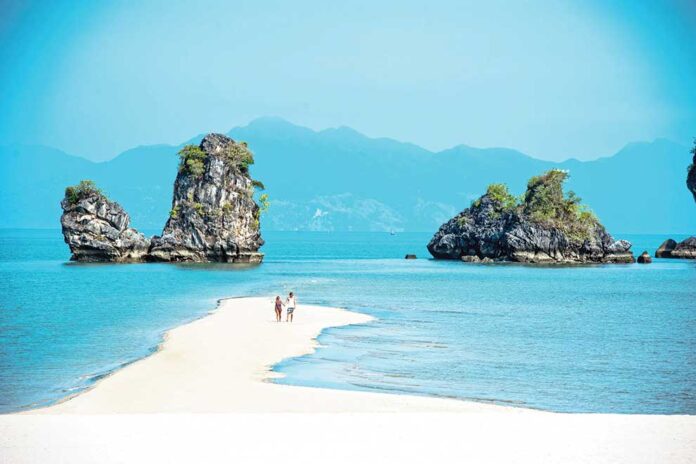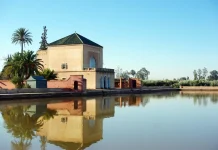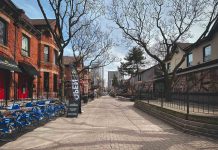With the Langkawi International Travel Bubble, travellers can quarantine on a beautiful tropical island. Photo supplied
Malaysia is taking a leading role with the Association of Southeast Asian Nations (ASEAN) focusing on regenerating its tourism industry after the ravages of the Covid-19 pandemic as the region carefully opens up again to visitors.
Deputy director-general of the Malaysia Tourism Promotion Board Musa Yusof told The Post on the sidelines of the 40th ASEAN Tourism Forum (ATF) 2022 held at Sihanoukville’s Sokha Beach Resort that the nation is continuing to come up with innovative solutions.
Malaysia has introduced the Langkawi International Travel Bubble (LITB), with visitors from scores of countries having already enjoyed the more relaxed entry system to the country.
“The Langkawi Travel Bubble is a recent development as we are moving away from having tourists quarantine alone in a hotel room, once they have adhered to protocols generally worldwide, such as a providing negative Covid test and having insurance.
“Langkawi is effectively a quarantine island, on which tourists can dive, jet ski, can island hop, can do whatever they wish to in a beautiful tropical island destination. And after seven days, if their test is negative, they are free to travel wherever they wish in Malaysia.
Malaysia boasts a wealth of incredible experiences. Photo supplied
“After a highly successful three-month pilot scheme which has seen tourists from 78 countries across the world come to Langkawi, we are now looking to open up other places,” Musa said.
The road to the recovery for the ASEAN travel and tourism sectors will also require collaboration as well as innovation, he said, with Malaysia seeking a region-wide approach to accelerate recovery.
“Malaysia was the first country to call for an ‘ASEAN Travel Pass’, a designated travel passport. At the time there weren’t reliable test kits available and vaccinations drives were yet to be rolled out.
“But we have these now and the majority of people in ASEAN are fully vaccinated, so now is the time to work together to rejuvenate the ASEAN tourism industry for the benefit of the region as a whole.
“With protocols standardised across the region, it would be possible for tourists to enter Cambodia and then travel on to Thailand and Malaysia or Vietnam, for example, benefiting the traveller and the countries they visit,” he said.
And this should be supported by an online one-stop ASEAN travel portal.
Melaka is a popular tourist destination. Photo supplied
“The agreed requirements to enter ASEAN should be made available on a single cross-regional ‘Visit ASEAN’ portal to make things as easy as possible for travellers and spur growth in the tourism sector.
“Providing up-to-date travel information and the best possible support will help travellers plan for their next trip safely and with peace of mind, thus encouraging greater numbers of travellers to visit the region.
“Travel is a major contributor to ASEAN’s tourism industry and its economies, and so we need to move this region forward in terms of tourism. In 2020, Malaysian tourism was down 83 per cent on the year before, with the region as a whole around the same.
“Health and safety must always be the top priorities as air travel resumes and restrictions ease around the globe, while increased vaccination rates are also key to restoring travel confidence,” Musa said.
To this end, Malaysia is ensuring the highest levels of hygiene, while monitoring the situation on a weekly basis.
Musa Yusof (fifth right) attends the Malaysia booth at ATF 2022 in Sihanoukville. Heng Chivoan
“We want tourists to have peace of mind that everything is clean and hygienic, and so we have launched the TSAM – the Travel Safe Alliance Malaysia – which includes all tour operators and the Malaysian Association of Hotels.
“This means all hotels, shopping malls, convention centres, meeting places, even buses and coaches, everything from the moment you arrive, meets the highest standards of health and safety,” Musa said.
Malaysia was a regional pioneer of homestay programmes – which differ from traditional tourism offerings by providing experiences with local cultures and environments – and the country is rolling out a range of innovative incentives, and green and niche products to rejuvenate its travel sector.
And with Malaysia and the region offering visitors so many incredible experiences, Musa is optimistic for the future.
Musa Yusof, deputy director-general of the Malaysia Tourism Promotion Board. Photo supplied
“We desire thriving businesses, healthy ecosystems, resilient livelihoods and sustainable tourism economies. Creating personalised travel experiences by uncovering hidden gems in areas off the beaten track will also entice travellers to travel again.
“But real recovery will only be possible when international tourism returns in large numbers. This requires collective regional and global cooperation so travel restrictions can be safely lifted.
“But do not lose hope in tourism because this sector is resilient, and there is a pent-up demand – the key is to cater for this safely and with confidence,” he said.
Escape the ordinary and discover the extraordinary! From bustling cities to serene landscapes, every journey begins with a single step—let us guide yours. Enjoy curated itineraries, hidden gems, and hassle-free bookings designed for explorers at heart. Whether it's a weekend getaway or a globe-trotting adventure, your Next unforgettable experience is just a click away.










